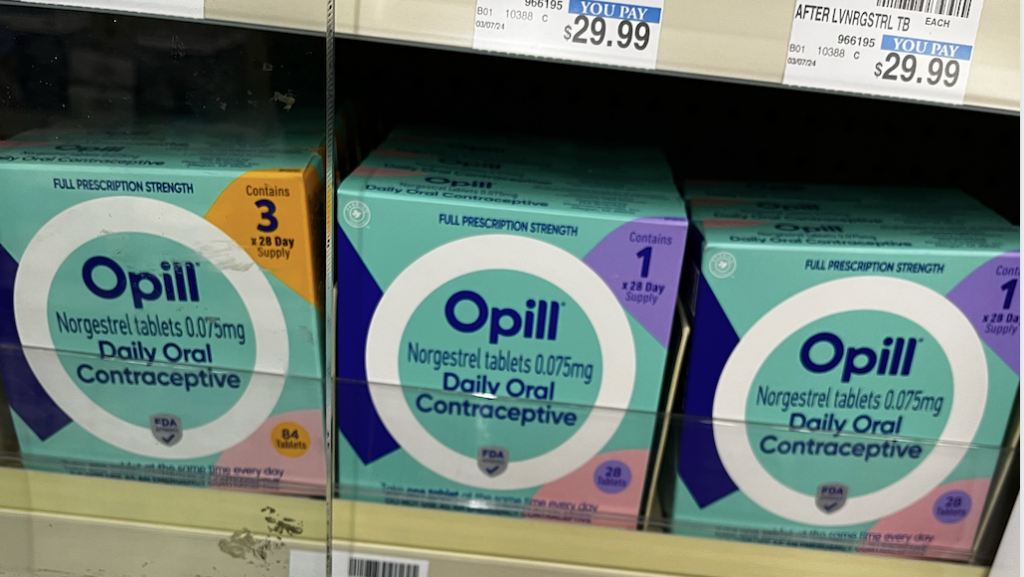Created Equal: First over-the-counter birth control pill expanding contraception access across US
Justina Giglio June 24, 2024Dr. Meredith Field, assistant professor at Alfred University in New York, joined the show to discuss how improved access to birth control helps to promote gender equality and bodily autonomy in America.

Opill is the first over-the-counter daily oral birth control pill approved by the U.S. Food and Drug Administration.
Nearly 60 years after Griswold v. Connecticut, a Supreme Court ruling that allowed married couples to legally use prescription birth control pills, the first over the counter birth control pill is now available in pharmacies across the U.S.
In July 2023, the FDA approved the Opill. A little less than a year later, Opill was available for purchase in March and early April 2024. It is a progestin-only daily contraceptive pill for those of reproductive age. Prices range from around $15-$20 and the manufacturer offers a Cost Assistance Program to those who qualify.
Dr. Meredith Field, an assistant professor in the Division of Social Sciences at Alfred University in New York, joined Created Equal on Monday to discuss how over-the-counter birth control access provides opportunities for greater gender equality and bodily autonomy in America.
Field says filling the unmet need for contraception is especially important after the U.S. Supreme Court’s Dobbs v. Jackson Women’s Health Organization ruling two years ago, which reduced abortion access across the U.S.
Subscribe to Created Equal on Apple Podcasts, Spotify, Google Podcasts, NPR.org or wherever you get your podcasts.
Guest
Dr. Meredith Field is an assistant professor in the Division of Social Sciences at Alfred University in New York. She says the political climate in the U.S. often threatens access to reproductive health care.
“I think the makeup of the SCOTUS right now definitely lends itself to trying to make progress for people who want to whittle [bodily autonomy] away. So that’s a big piece of it. I think relating that to the Opill is really important, because it does have the potential to make hormonal birth control much more accessible to a broader population, and that is very powerful,” she said. “And so anything that has that much potential power is also seen as a potential threat, right? So I’m sure it’s going to continue to be under attack in various ways, unfortunately.”
Listen to Created Equal with host Stephen Henderson weekdays from 9-10 a.m. ET on 101.9 WDET and streaming on-demand.
